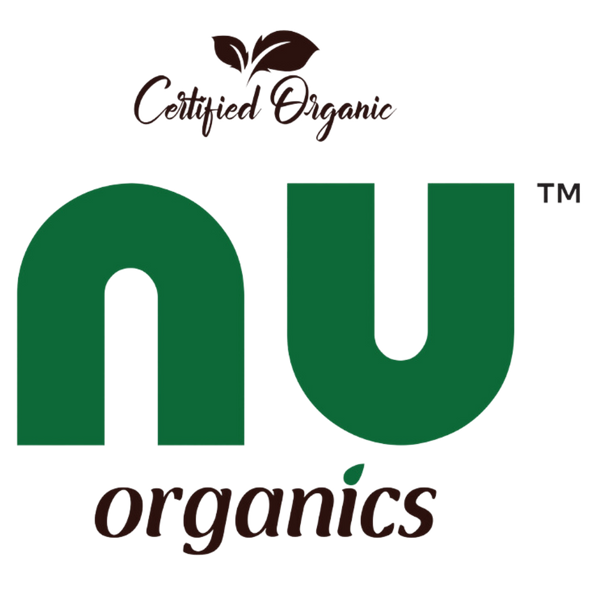If you’re looking for a simple way to improve your health without making drastic diet changes, look no further than your pantry. Organic seeds for daily nutrition are small but mighty powerhouses packed with essential vitamins, minerals, protein, healthy fats, and fiber. They’ve been part of traditional diets for centuries—from Ayurvedic medicine in India to ancient civilizations in the Americas—and modern science is catching up to confirm their incredible benefits.
In this article, we’ll explore the five must-have organic seeds you should include in your daily meals: chia seeds, flaxseeds, pumpkin seeds, sunflower seeds, and sesame seeds. We’ll break down their nutritional profiles, unique health benefits, and practical ways to add them to your diet—so you can enjoy better digestion, glowing skin, improved immunity, and overall vitality.

1. Chia Seeds – A Daily Superfood for Fiber & Omega-3s
Chia Seeds Nutritional Benefits
Organic Chia seeds might be tiny, but they are one of the richest plant-based sources of omega-3 fatty acids, which are crucial for heart and brain health. Just two tablespoons contain:
-
Fiber: 10g (about 40% of your daily need)
-
Protein: 4g
-
Omega-3s: 5g
-
Calcium, magnesium, and antioxidants
Health Benefits of Chia Seeds:
-
Supports digestion and gut health thanks to soluble fiber.
-
Stabilizes blood sugar levels by slowing carbohydrate absorption.
-
Promotes heart health by reducing LDL cholesterol.
-
Keeps you feeling full, helping with weight management.
Easy Ways to Use Chia Seeds Daily
-
Make overnight chia pudding with almond milk and fresh fruits.
-
Stir into smoothies or protein shakes for a nutritional boost.
-
Add to oatmeal, salads, or baked goods for extra crunch.
2. Flaxseeds – Digestive Support and Planet-Friendly Omega-3s
Why Use Ground Flaxseeds for Maximum Benefit
Because whole organic flaxseeds frequently pass through your system undigested, your body is deprived of its fiber, lignans, and omega-3 fatty acids. Grinding them breaks the tough outer shell, making nutrients bioavailable.
Nutritional Highlights:
-
Rich in ALA (Alpha-Linolenic Acid), a plant-based omega-3.
-
High lignan content—powerful antioxidants with hormone-balancing properties.
-
Great source of soluble and insoluble fiber.
Key Benefits:
-
Supports digestive health by improving bowel regularity.
-
May reduce cholesterol levels.
-
Helps regulate hormones, especially in women experiencing menopause symptoms.
Quick & Tasty Flaxseed Recipe Ideas
-
Blend into smoothies for a nutty flavor.
-
Add ground flaxseeds to pancake or bread batter.
-
Mix into yogurt, soups, or salads for a nutritional boost.
3. Pumpkin Seeds – Protein-Packed Boost for Immunity
Pumpkin Seeds Nutrition Profile
Also called pepitas, organic pumpkin seeds are an excellent source of plant-based protein, zinc, magnesium, and antioxidants.
Nutrition Per 28g (¼ cup):
-
Protein: 9g
-
Magnesium: 37% of RDI
-
Zinc: 14% of RDI
-
Iron: 23% of RDI
Benefits:
-
Strengthens the immune system with zinc.
-
Supports muscle function and heart health with magnesium.
-
Tryptophan, an amino acid that aids in the production of serotonin and melatonin, improves the quality of sleep.
Creative Daily Ways to Include Pumpkin Seeds
-
Snack on roasted pumpkin seeds.
-
Sprinkle over soups, stir-fries, or salads.
-
Blend into pesto instead of pine nuts for a nut-free alternative.
4. Sunflower Seeds – Vitamin E Powerhouse
Sunflower Seeds & Skin Health
One of the best natural sources of vitamin E, an antioxidant that shields cells from oxidative stress and maintains the youthful appearance of skin, is organic sunflower seeds.
Nutritional Benefits:
-
Vitamin E: 66% of daily value per 28g serving
-
Protein: 6g
-
Healthy fats to support heart health
Health Perks:
-
Improves skin elasticity and hydration.
-
Boosts immune function.
-
Helps reduce inflammation in the body.
Snack and Meal Uses for Sunflower Seeds
-
Eat raw or lightly roasted for a quick snack.
-
Add to granola mixes or trail mixes.
-
As a healthier option to spread, use sunflower seed butter.
5. Sesame Seeds – Hormone Balance & Bone Health Support
Why Sesame Seeds Help with Hormone Balance
Sesame seeds are rich in phytoestrogens, plant compounds that mimic estrogen in the body—helpful for hormone balance, particularly for women in perimenopause or menopause.
Nutritional Highlights:
-
Calcium: Bone-strengthening mineral.
-
Magnesium & zinc: For metabolic and immune health.
-
Healthy fats & protein to keep you energized.
Benefits:
-
Supports bone density.
-
Aids in hormonal balance.
-
Provides antioxidants for overall wellness.
Incorporating Sesame into Breakfasts and Snacks
-
Sprinkle on salads, stir-fries, and noodle dishes.
-
Add sesame seed paste, or tahini, to dips and sauces.
-
Sprinkle over handmade crackers or mix into bread dough.
FAQs
1. Can I eat chia seeds every day for better digestion?
Yes! Chia seeds are rich in fiber and omega-3s—daily use can support digestion and gut health when mixed into smoothies, yogurt, or oatmeal.
2. How do you best consume flaxseeds for nutrient absorption?
For full benefits, ground flaxseeds are ideal—use them in smoothies, baking, or sprinkled on cereal to maximize their omega-3 and fiber content.
3. Are pumpkin seeds good for immunity and organic?
Absolutely—organic pumpkin seeds are loaded with zinc, magnesium, and plant-based protein, making them a great immunity-boosting snack.
4. Do sunflower seeds really boost skin health?
Yes—rich in vitamin E and antioxidants, sunflower seeds help protect skin cells and promote a healthy complexion.
5. How do sesame seeds help with hormonal balance and bone support?
Sesame seeds contain calcium, zinc, and phytoestrogens; these nutrients contribute to healthy hormone regulation and stronger bones.
6. What’s the best way to eat organic seeds daily without overdoing it?
Stick to 1–2 tablespoons per seed each day and mix them into meals or snacks to benefit from their nutrition without excessive calories.
7. Can organic seeds help with heart health and cholesterol lowering?
Definitely—many seeds (like flax, chia, and sunflower) provide healthy fats and fiber that support cardiovascular health and cholesterol regulation.

